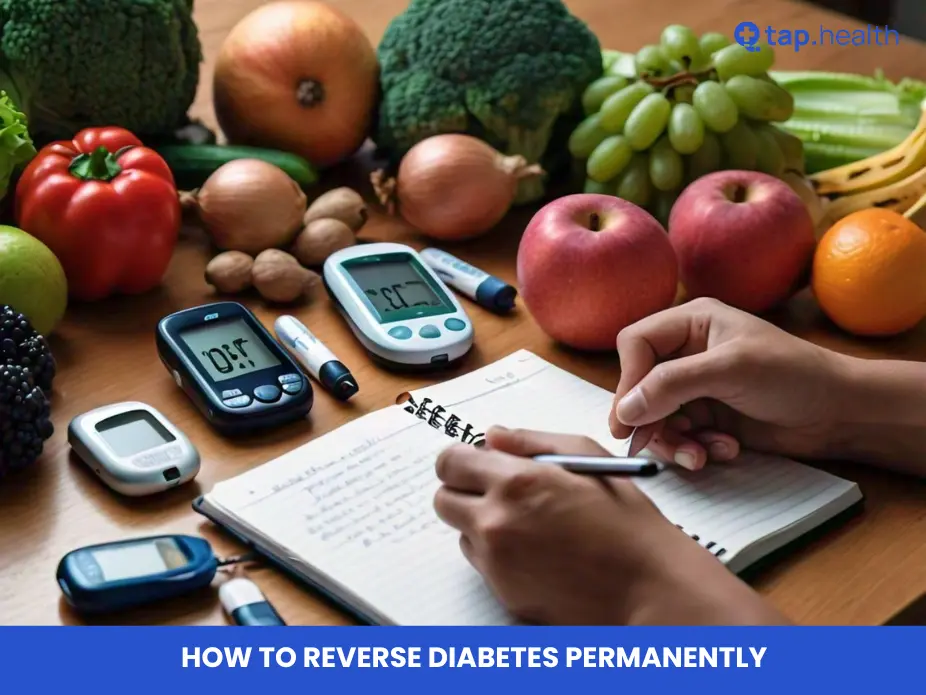Table of Contents
- Mindfulness Techniques for Diabetes: Stress Less, Live Better
- How Mindfulness Improves Diabetes Management and Well-being
- Reduce Stress and Blood Sugar: A Mindfulness Guide for Diabetes
- Mindfulness vs. Medication: Can Meditation Help Manage Diabetes?
- Practical Mindfulness Exercises for Better Diabetes Control
- Frequently Asked Questions
- References
Mindfulness Techniques for Diabetes: Stress Less, Live Better
Managing diabetes, especially in the heat and humidity of Indian and tropical countries, can be incredibly challenging. The added stress of managing blood sugar levels, coupled with the often-demanding climates, can significantly impact well-being. But what if we told you there’s a simple, yet powerful, tool readily available? Mindfulness.Harnessing the Power of Mindfulness for Diabetes Management
Studies show that stress elevates blood sugar levels, making diabetes management even more difficult. A significant portion of the global diabetes population, 61% of whom are aged between 20-64 years, could greatly benefit from incorporating mindfulness techniques into their daily routines. These techniques, simple yet profound, can help reduce stress, improve insulin sensitivity, and foster a greater sense of control over the condition. In hot climates, the added stress of heat can exacerbate diabetes; mindfulness offers a refuge from these pressures.Practical Mindfulness Techniques for Daily Life
Even simple practices like deep breathing exercises, for instance, 5-10 minutes of focused breathing several times a day, can make a remarkable difference. Consider incorporating short meditation sessions, focusing on the present moment, and practicing mindful eating, paying attention to the taste, texture, and smell of your food. These techniques can improve your overall well-being and help manage your blood sugar levels more effectively. Remember, consistency is key. Start with small, manageable steps, gradually increasing the duration and frequency of your practice. For more tips on stress management and its impact on diabetes control, check out our article on Effective Stress Management Tips for Better Diabetes Control.A Path to Better Well-being in Tropical Climates
For individuals in India and other tropical countries, adapting mindfulness practices to the local context is vital. Practicing mindfulness outdoors in the cooler parts of the day, incorporating mindful walks in nature, or even mindful yoga can help you stay cool and calm amidst the heat. Remember, improving your mental well-being is as crucial as managing your physical health in navigating the challenges of diabetes. As you age, managing diabetes presents unique challenges; learn more about these in our comprehensive guide, Managing Diabetes as You Age: Challenges and Solutions. Start your mindfulness journey today and experience the transformative effects on your health and overall quality of life.How Mindfulness Improves Diabetes Management and Well-being
Managing diabetes in hot and humid climates like those prevalent in India and other tropical countries presents unique challenges. Stress, often exacerbated by environmental factors, can significantly impact blood sugar control. Research shows a strong link between diabetes and sleep disorders; in fact, individuals with diabetes have a 70% increased risk of sleep apnea. This underscores the crucial role of stress reduction in effective diabetes management. Mindfulness practices offer a powerful tool to address this.Reducing Stress Through Mindfulness
Mindfulness techniques, such as meditation and deep breathing exercises, help regulate the body’s stress response. By focusing on the present moment, you can reduce anxiety and improve your overall emotional well-being. This, in turn, can lead to better blood sugar control and improved sleep quality, mitigating the increased risk of sleep apnea associated with diabetes. Even short, regular mindfulness sessions can make a significant difference.Practical Mindfulness for Diabetes
Incorporating mindfulness into your daily routine can be simple. Start with just 5-10 minutes of daily meditation. Focus on your breath, noticing the sensation of the air entering and leaving your body. Practice mindful eating, paying attention to the taste, texture, and smell of your food. Engage in activities you enjoy, such as yoga or spending time in nature, to promote relaxation and reduce stress. These practices, tailored to the Indian and tropical context, can help you navigate the challenges of diabetes management more effectively. For more tips on effective management, check out our guide on 10 Proven Tips for Effective Diabetes Management.Improving Your Well-being
Prioritizing mindfulness in your diabetes management plan is a crucial step towards improving both your physical and mental health. By reducing stress and promoting relaxation, you can gain better control over your blood sugar levels, reduce the risk of complications, and experience an improved quality of life. Start your mindfulness journey today. Find a local yoga class, download a meditation app, or simply dedicate a few minutes each day to mindful breathing. Your health will thank you for it. It’s also important to understand the connection between diabetes and mental health. Learn more about this crucial relationship in our article on The Impact of Diabetes on Mental Health.Reduce Stress and Blood Sugar: A Mindfulness Guide for Diabetes
Managing diabetes in India and other tropical countries presents unique challenges. The high prevalence of hypertension among individuals with diabetes—over 60% according to the International Diabetes Federation (IDF)—highlights the critical need for effective stress management strategies. Chronic stress significantly impacts blood sugar levels, exacerbating the already demanding task of diabetes control. Mindfulness practices offer a powerful, accessible tool to counteract this. Understanding how stress hormones specifically affect your blood sugar is crucial; learning more about this connection can be incredibly beneficial. You can learn more in our blog on How Stress Hormones Affect Diabetes.Harnessing Mindfulness for Better Blood Sugar Control
Mindfulness involves focusing on the present moment without judgment. Simple techniques like deep breathing exercises, even for just five minutes daily, can significantly reduce stress hormones. This, in turn, helps regulate blood sugar levels and improves overall well-being. Regular meditation, even short guided sessions available through apps, can further enhance these benefits. Consider incorporating mindful eating practices; paying attention to the taste, texture, and smell of your food can promote healthier eating habits and better blood glucose control. To learn more about preventing blood sugar spikes through mindful eating, check out our guide on Mindful Eating Strategies to Prevent Blood Sugar Spikes.Practical Mindfulness for Daily Life in Tropical Climates
The heat and humidity of tropical climates can add to stress levels. Incorporate mindfulness into your daily routine to combat this. Begin your day with a few minutes of mindful breathing, focusing on the coolness of the air. Throughout the day, take short breaks to engage in mindful moments: observe the sights and sounds around you, appreciating the natural beauty of your surroundings. Before meals, practice mindful eating, savoring each bite. These small acts of mindfulness can cumulatively reduce stress and improve your overall quality of life.Taking Control: Your Next Steps
Prioritizing mindfulness is a crucial step towards better diabetes management in India and other tropical regions. Start small, incorporate these techniques gradually into your daily life, and observe the positive impact on your blood sugar levels and overall well-being. Remember, consistent practice is key to reaping the full benefits of mindfulness for improved diabetes management.Mindfulness vs. Medication: Can Meditation Help Manage Diabetes?
The link between stress and diabetes is undeniable. Research shows that factors like smoking significantly exacerbate the risks, with smokers with diabetes facing twice the mortality rate from cardiovascular issues. This highlights the critical need for effective stress management strategies, beyond medication alone. Mindfulness practices, particularly meditation, offer a powerful, complementary approach to diabetes management in India and other tropical countries.The Power of Mindfulness in Diabetes Management
While medication plays a crucial role in regulating blood sugar levels, mindfulness techniques address the underlying stress that can negatively impact diabetes control. Stress hormones released during stressful periods can disrupt blood sugar regulation, potentially leading to complications. Regular meditation helps reduce these stress hormones, promoting a more balanced physiological response. This is particularly relevant in regions like India, where cultural pressures and lifestyle factors can contribute to high stress levels. Managing cholesterol is also crucial; learn more about How to Manage Cholesterol Levels with Diabetes?Practical Mindfulness Techniques for Diabetics
Incorporating simple mindfulness exercises into your daily routine can make a significant difference. Start with 5-10 minutes of deep breathing exercises each morning and evening. Focus on your breath, noticing the sensation of air entering and leaving your body. You can also practice mindful eating, paying close attention to the taste, texture, and smell of your food. This heightened awareness can help you make healthier food choices and manage portion sizes, both vital for diabetes management. Consider joining a local yoga or meditation class, readily available across India and many tropical regions, for guided practice and community support.Beyond Medication: A Holistic Approach
Ultimately, a holistic approach combining medication with mindfulness techniques offers the most comprehensive diabetes management strategy. By reducing stress and cultivating a sense of inner calm, mindfulness empowers individuals to take proactive control of their health and well-being, leading to improved overall quality of life. Explore local mindfulness resources and integrate these practices into your daily routine for a healthier, more balanced life. It’s also important to note that while meditation can be beneficial, it shouldn’t replace medical advice. For information on other potential complementary approaches, you might find our article on Is Marijuana Good for Diabetes? Exploring the Effects and Benefits interesting.Practical Mindfulness Exercises for Better Diabetes Control
Managing diabetes isn’t just about food, exercise, and medicines. Stress also plays a huge role, yet it often gets ignored. Research suggests that up to 80% of Type 2 diabetes cases could be delayed or prevented with lifestyle changes—and stress management is a key part of this.
Mindfulness is a simple yet powerful way to reduce stress and improve overall health, which directly helps in better diabetes control. For people in India and other tropical countries, where hectic lifestyles and environmental factors add to stress, mindfulness can make a big difference.
1. Deep Breathing Techniques
One of the easiest ways to calm your mind is through conscious breathing.
How to do it:
-
Sit comfortably in a quiet place.
-
Inhale slowly through your nose, letting your belly rise.
-
Hold for a few seconds.
-
Exhale gently through your mouth.
-
Repeat for 5–10 minutes daily.
This practice helps reduce anxiety, lowers stress hormones, and may even help regulate blood sugar. The best part? You can do it anywhere—even at work or while traveling.
2. Mindful Walking
Walking is already recommended for diabetes, but mindful walking gives you extra benefits.
How to do it:
-
As you walk, pay close attention to how your feet touch the ground.
-
Notice your body movements and rhythm of your breath.
-
Be aware of your surroundings—the sounds, sights, and smells—without judgment.
This not only relaxes your mind but also makes walking more enjoyable. In warm regions like India and tropical countries, mindful walking in parks or calm areas is especially refreshing.
3. Body Scan Meditation
This technique helps you become more aware of your body and release tension.
How to do it:
-
Lie down or sit comfortably.
-
Start by focusing on your toes, noticing any sensations.
-
Slowly move your attention upward—feet, legs, abdomen, chest, arms, neck, and head.
-
Spend a few seconds on each body part.
This practice reduces stress, improves sleep, and can help manage the emotional challenges of living with diabetes. You can do it for 5 minutes or longer, depending on your schedule.
Final Thoughts
Mindfulness is not a quick fix, but with daily practice, it can make diabetes management less stressful and more balanced. Whether it’s deep breathing, mindful walking, or body scanning, these simple exercises fit easily into everyday life.
Tip: Always check with your doctor before making major changes to your diabetes care routine.
How Tap Health Can Help Diabetics
Tap Health is an AI-powered diabetes care app designed especially for Indian users. It helps you track your blood sugar levels, count carbohydrates in your meals, and maintain better control over your overall health — all in one place.
Why Tap Health Is a Game-Changer for Diabetics
Managing diabetes doesn’t have to be difficult. Tap Health simplifies your daily routine with smart tools and personalized guidance to help you stay consistent and informed. Here’s how it helps:
Accurate Carb Counting – Simply take a photo of your meal, and Tap Health instantly estimates the carbohydrates, calories, and portion sizes, including common Indian foods.
Smart Blood Sugar Tracking – Record your glucose readings and get clear insights into how your food choices affect your blood sugar levels over time.
Reminders and Alerts – Receive daily reminders for medicines, meals, and glucose checks so you never miss a step in your routine.
AI-Powered Insights – Tap Health analyzes your data and provides personalized suggestions to improve your diet, physical activity, and sugar control.
Indian Diet Support – The app features a wide range of Indian dishes, regional recipes, and customized meal plans that suit your taste and lifestyle.
Progress Tracking – Monitor your HbA1c, blood sugar trends, and overall improvement through simple, easy-to-understand charts and reports.
Access to Experts – Connect directly with doctors and dietitians for professional advice, ensuring safe and effective diabetes management.
Frequently Asked Questions on Mindfulness for Diabetes Management
Q1. How can mindfulness help manage diabetes, especially in hot climates?
Mindfulness techniques like deep breathing and meditation help lower stress hormones, which significantly impact blood sugar control. Reduced stress improves insulin sensitivity, leading to better blood sugar management. This is particularly beneficial in hot, humid climates where stress levels can be higher.Q2. What specific mindfulness practices are most helpful for diabetes?
Deep breathing exercises, meditation, and mindful eating are particularly effective. Incorporating mindful walks in nature, adapted to your local environment, can also be highly beneficial.Q3. Does mindfulness replace diabetes medication?
No, mindfulness is a complementary approach. It works alongside medication and other treatments to improve overall well-being and blood sugar control, not as a replacement for prescribed medication.Q4. How much time do I need to dedicate to mindfulness practices for noticeable benefits?
Even short, regular mindfulness practices can make a difference. Consistency is key, but even a few minutes each day can contribute to improved blood sugar control and stress reduction.Q5. What are some common challenges in adopting mindfulness for diabetes management, and how can I overcome them?
Consistency can be a challenge. To overcome this, try integrating mindfulness into your daily routine, start with short sessions, and find practices you enjoy. Adapting practices to your local context and lifestyle can also improve adherence.References
- A Practical Guide to Integrated Type 2 Diabetes Care: https://www.hse.ie/eng/services/list/2/primarycare/east-coast-diabetes-service/management-of-type-2-diabetes/diabetes-and-pregnancy/icgp-guide-to-integrated-type-2.pdf
- Diabetes Mellitus: Understanding the Disease, Its Diagnosis, and Management Strategies in Present Scenario: https://www.ajol.info/index.php/ajbr/article/view/283152/266731



